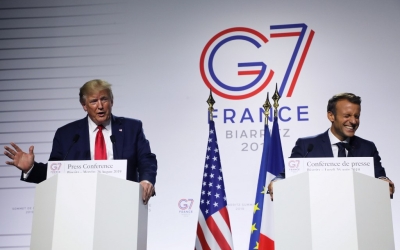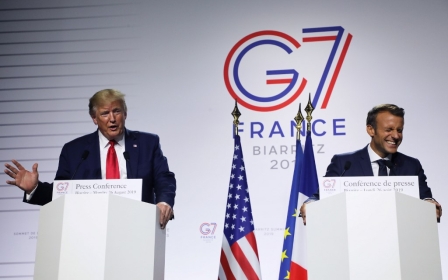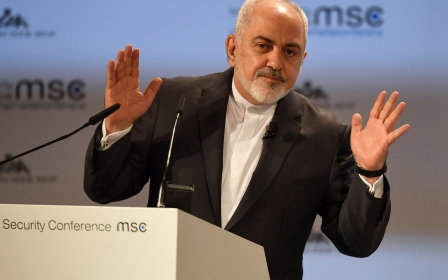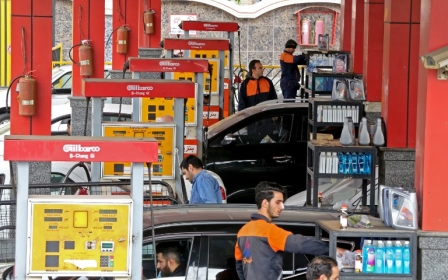US imposes sanctions on networks it says are tied to Iran's missile programme
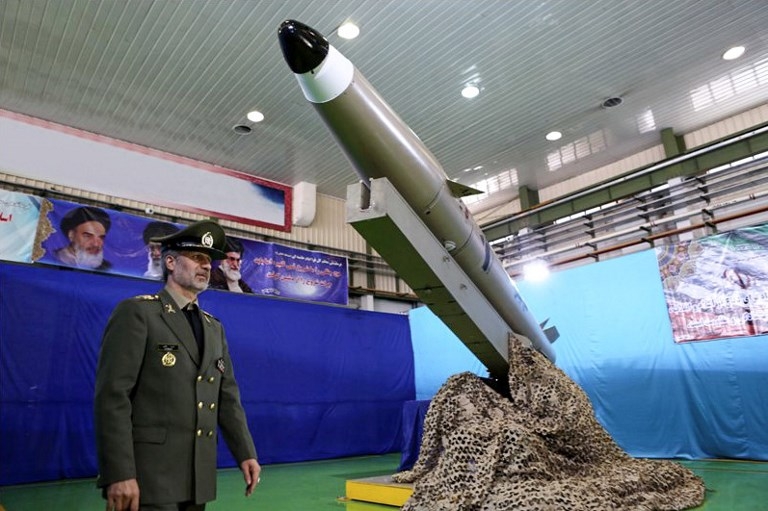
The US Treasury Department has issued sanctions against two networks it says are tied to Iran's missile proliferation programme, days after President Donald Trump said he was open to meeting with his Iranian counterpart amid ongoing tensions between the two countries.
In a statement on Wednesday, the department said one of the now-sanctioned networks used a Hong Kong-based front company to evade US and international sanctions and target American technology and electronic components on behalf of the Islamic Revolutionary Guard Corps (IRGC).
Washington designated the IRGC, Iran's elite military force, a foreign terrorist organisation in April.
The US Treasury said the second network sanctioned on Wednesday was responsible for obtaining aluminium alloy products for entities owned or controlled by Iran's Ministry of Defence.
'As the Iranian regime attempts to use complex schemes to hide its efforts to bolster its WMD program, the US government will continue to thwart them at every turn'
- Sigal Mandelker, US Treasury Department
The department also placed sanctions on individuals it accused of being connected to the two networks.
New MEE newsletter: Jerusalem Dispatch
Sign up to get the latest insights and analysis on Israel-Palestine, alongside Turkey Unpacked and other MEE newsletters
"As the Iranian regime attempts to use complex schemes to hide its efforts to bolster its WMD programme, the US government will continue to thwart them at every turn," said Sigal Mandelker, the department's under secretary for terrorism and financial intelligence.
The new sanctions come only days after Trump and Iranian Foreign Minister Mohammed Javad Zarif both attended the G7 meeting in Biarritz, France.
On the sidelines of that summit, Trump said he would be open to talks with Iranian President Hassan Rouhani.
"If the circumstances were correct or right, I would certainly agree to that," Trump said at a news conference during the summit.
"But in the meantime, they have to be good players."
Wednesday's sanctions may create an obstacle for that potential meeting, as the Iranian leader has said that he would not meet his American counterpart until Washington's sanctions against Tehran were lifted.
Later in the day, Rouhani called on Iranians to unite and prevail over an "economic war that America has launched against Iran", Reuters reported.
"Taking into account Donald Trump's personal traits, we don't trust him; however, Iran has never abandoned diplomacy but we are determined to pursue it as an equal [of the US]," said Iran's government spokesman Ali Rabie, Reuters also reported, citing state television.
US-Iran tensions
Tensions between the two countries have remained high since Trump came into office, with the US president pulling out of the Iran nuclear deal, formally known as the Joint Comprehensive Plan of Action (JCPOA), last year.
The 2015 agreement between Iran and five other countries saw the Iranian government drastically scale back its nuclear programme in exchange for the easing of sanctions against its economy.
After it withdrew from the multilateral accord, the US imposed a series of sanctions on key Iranian industries as part of its "maximum pressure" campaign against the country.
Over the past year, Washington has also imposed sanctions on Iran's Supreme Leader Ayatollah Ali Khamenei and Zarif, the Iranian foreign minister.
In June, Iran broke a key limit in the nuclear deal for its threshold of stockpiles of low-enriched uranium, saying that Europe has failed to protect Tehran's interests under the deal.
Iranian officials have repeatedly called on European leaders to protect the country from the affects of the US's sanctions.
French President Emmanuel Macron has been leading European mediation efforts to defuse tensions between Iran and the US.
At the G7 over the weekend, Zarif held talks with French, British and German officials, but Trump said it was "too soon" for him to meet the Iranian diplomat.
Middle East Eye delivers independent and unrivalled coverage and analysis of the Middle East, North Africa and beyond. To learn more about republishing this content and the associated fees, please fill out this form. More about MEE can be found here.


